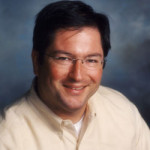 David Rettinger discusses his research into cheating during an interview scheduled to air on the “With Good Reason” public radio program beginning Saturday, November 6.
David Rettinger discusses his research into cheating during an interview scheduled to air on the “With Good Reason” public radio program beginning Saturday, November 6.
Today’s technology – from cell phone cameras to Google – makes it easier for students to cheat. Rettinger, associate professor of psychology, used to believe that teaching right from wrong was enough to deter cheating. But his recent research suggests that’s not enough. He tells “With Good Reason” that old-fashioned guilt, shame, and fear of getting caught are crucial ingredients to stop students from cheating.
Rettinger’s interview, part of a broadcast called “iCheat: Technology and Dishonor on Campus,” will air on WCVE 88.9 FM on November 6 at 4:30 p.m. and on WAMU 88.5 FM on Monday, November 8 at 12:30 a.m. The broadcast also can be heard beginning November 6 at http://withgoodreasonradio.org/2010/11/should-work-be-meaningful.
During the interview, Rettinger describes how moral or ethical attitudes alone don’t discourage cheating. Students consider how they’ll feel when deciding whether to cheat. When cheating leads to feelings of guilt or shame, students may blame the teacher, the workload, the culture or other students—not themselves.
A cognitive psychologist, Rettinger has a range of research interests that include judgment and decision making, academic integrity and in general, moral decision making. In particular, he has undertaken a line of research that examines college students’ decision to cheat on exams.
Rettinger received a Ph.D. and a master of arts in psychology from the University of Colorado and a bachelor of arts in psychology from University of Michigan, Ann Arbor.
“With Good Reason” is the only statewide public radio program in Virginia. It hosts scholars from Virginia’s public colleges and universities who discuss the latest in research, pressing social issues and the curious and whimsical. “With Good Reason” is produced for the Virginia Higher Education Broadcasting Consortium by the Virginia Foundation for the Humanities and is broadcast in partnership with public radio stations in Virginia and Washington, D.C.